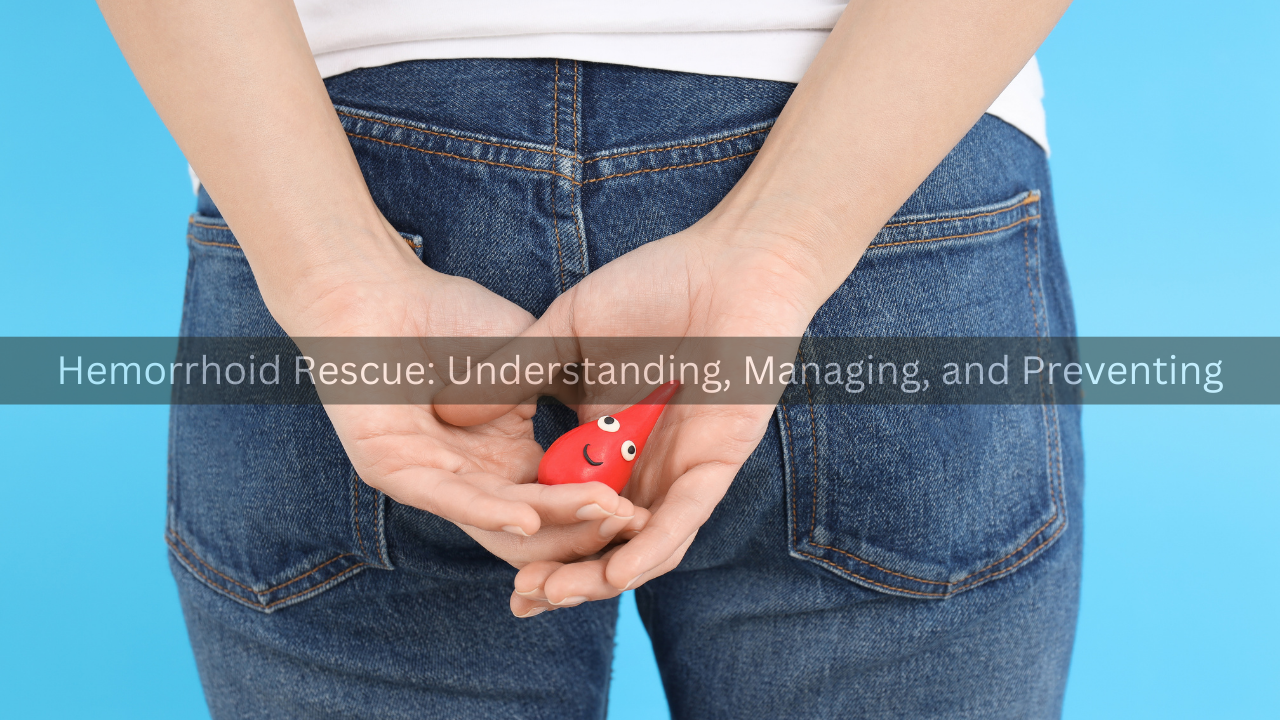
Hemorrhoids, although common and often manageable with home remedies, can sometimes escalate into more serious issues that require medical attention. Understanding when to seek professional help is crucial for preventing complications and ensuring appropriate treatment. Here’s a guide to recognizing severe hemorrhoid symptoms and knowing when to consult a healthcare provider.
1. Persistent or Severe Bleeding
While minor bleeding from hemorrhoids can be relatively normal, persistent or severe bleeding is a cause for concern. If you notice:
- Heavy Bleeding: Blood that flows in streams or saturates toilet paper or underwear.
- Frequent Bleeding: Regular episodes of bleeding over several days or weeks.
Such symptoms could indicate complications like a torn hemorrhoid or other conditions requiring medical evaluation. It’s important to rule out other potential causes of bleeding, such as gastrointestinal issues or more serious conditions.
2. Extreme Pain
Hemorrhoids can cause discomfort and pain, but severe pain that is debilitating or doesn’t improve with home treatments warrants attention. Symptoms to watch for include:
- Intense Pain: Severe pain that interferes with daily activities or causes significant discomfort even at rest.
- Throbbing or Pulsating Sensation: Pain that feels intense and persistent rather than mild or intermittent.
Severe pain could indicate complications such as thrombosed hemorrhoids, where a blood clot forms inside the hemorrhoid, causing extreme discomfort and swelling.
3. Prolapsed Hemorrhoids
A prolapsed hemorrhoid occurs when an internal hemorrhoid protrudes through the anus. Symptoms include:
- Visible Protrusion: A lump or bulge that can be seen or felt around the anal area.
- Discomfort or Pain: Prolapsed hemorrhoids can cause significant discomfort, especially during bowel movements.
If the prolapsed hemorrhoid cannot be gently pushed back into place or if it becomes extremely painful, medical intervention may be necessary to address the issue and prevent further complications.
4. Signs of Infection
Infection of a hemorrhoid can occur, leading to more severe symptoms such as:
- Redness and Swelling: Increased redness, swelling, or warmth around the hemorrhoid area.
- Fever: A noticeable increase in body temperature, indicating a potential systemic infection.
- Pus or Discharge: Unpleasant-smelling discharge or pus from the affected area.
If you suspect an infection, seek medical advice promptly to receive appropriate antibiotics or other treatments to prevent the infection from spreading.
5. Severe Itching or Irritation
While mild itching is common with hemorrhoids, severe or persistent itching that does not improve with over-the-counter treatments may signal a more serious issue. This could be due to:
- Excessive Irritation: Persistent itching despite using gentle hygiene practices and treatments.
- Secondary Skin Issues: Development of additional skin conditions around the anus due to constant scratching or irritation.
In such cases, it is important to consult a healthcare provider to address the underlying cause and find effective relief.
6. Unusual Changes in Bowel Movements
Significant changes in bowel habits associated with hemorrhoids can be concerning. If you experience:
- Change in Stool Consistency: Noticeable changes in the frequency or consistency of stools, such as chronic diarrhea or constipation.
- Unexplained Weight Loss: Unexpected weight loss along with changes in bowel habits.
These symptoms could suggest other gastrointestinal issues or complications that need medical assessment and intervention.
7. Inability to Pass Stools
If you experience difficulty passing stools despite dietary and lifestyle adjustments, it could be a sign of a severe issue related to hemorrhoids or other conditions. This includes:
- Severe Constipation: Persistent constipation that is resistant to home treatments and causing significant discomfort.
- Incomplete Evacuation: The sensation of incomplete bowel movements or difficulty passing stools.
Medical evaluation is necessary to address the underlying problem and find an appropriate treatment plan.
Conclusion
While most hemorrhoid symptoms can be managed with home remedies and lifestyle changes, recognizing when symptoms are severe or worsening is key to preventing complications. If you experience persistent bleeding, severe pain, prolapsed hemorrhoids, signs of infection, severe itching, unusual bowel changes, or difficulty passing stools, seek medical help promptly. A healthcare provider can offer a comprehensive evaluation, accurate diagnosis, and effective treatment options to address your symptoms and improve your overall health.
